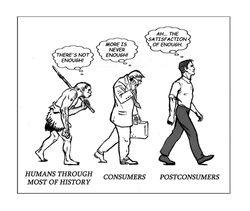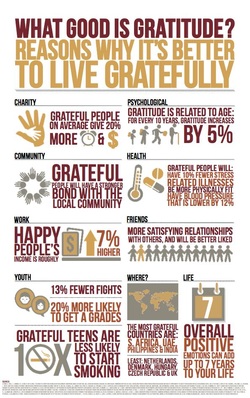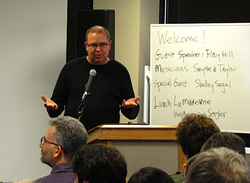 Photo: Pixabay, Creative Commons CC0 Photo: Pixabay, Creative Commons CC0 Pope Francis forcefully denounced an idolatrous culture based on money, highlighting consumption, a "culture of disposal," the rich-poor gap, and lack of financial ethics. The Catholic News Service reports: Pope Francis called for global financial reform that respects human dignity, helps the poor, promotes the common good and allows states to regulate markets.  A retired 82-year-old barber has been offering free haircuts to the homeless at a Connecticut park for the past 25 years. All he asks for is a hug in return. He was originally motivated to start by a church sermon. The Huffington Post reports: His clients line up on park benches, some of them also turning out for free meals provided on Wednesdays by a local church. One by one they take a seat in a folding lawn chair above a car battery Cymerys uses to power his clippers.  Laura Miller writes about how God led her to create a movement of 2,000 agents performing anonymous acts of kindness across nine countries. She reports on "missions" at the Secret Agent L blog. And did I see any of this coming? Not at all. But it has become so very clear to me that this is my calling. Christians need to move beyond comfort zones with apostolic zeal and a "healthy craziness", even risk becoming an annoyance as Paul did, according to Pope Francis. The Catholic News Service reports: The church doesn't need couch-potato Catholics, it needs believers with "apostolic zeal," willing to preach the uncomfortable words of Christ, Pope Francis said. "And if we annoy people" with this zeal for Christ, then "blessed be the Lord," he said in his daily morning Mass homily May 16.  Postconsumers.com offers articles and other resources for living simpler, more satisfied lives. They are also promoting their new book, Get Satisfied. Postconsumers is an educational company helping to move society beyond addictive consumerism. We are consuming mindfully with an eye toward the satisfaction of enough. In other words, we advocate mindful consumption based on every person’s core values, rather than an endless quest for stuff driven by society. It’s up to each person to decide what’s right for him or her at any particular time. Whether postconsumers choose to be satisfied with a little or a lot, they are all wealthy in their contentment.  The Greater Good Science Center at U.C. Berkeley offers these articles on gratitude:
 Sunday gathering held by atheist groups may provoke some interesting questions to Catholic and Christians. The Religion News Service reports on Houston Oasis and other similar non-worship services. What questions might we ask?
From the article: Houston Oasis is part of a growing trend. Atheists and other nonbelievers have long gathered for events with meaning and music, but in the last year, a number of nontheistic groups have initiated Sunday morning events that include elements of a standard church service.  BoingBoing.net passes on an article: "Writing in The Atlantic, Amy Schiller documents how Mattel has spent the past 15 years transforming the expensive, highly detailed American Girl dolls from a source of radical inspiration that signposted moments in the history of the struggles for justice and equality in the US, into posh upper-middle-class girls who raise money for bake sales. As Lenore Skenazy points out, the original American Girls were children who had wild adventures without adult oversight; the new crop are helicopter-parented and sheltered, and their idea of high adventure is a closely supervised day in the snow." ... the original dolls confronted some of the most heated issues of their respective times. In the book A Lesson for Samantha, she wins an essay contest at her elite academy with a pro-manufacturing message, but after conversations with Nellie, her best friend from a destitute background who has younger siblings working in brutal factory jobs, Samantha reverses course and ends us giving a speech against child labor in factories at the award ceremony. Given the class divide, Samantha's speech presumably takes place in front of the very industrial barons responsible for those factory conditions. The book is a bravura effort at teaching young girls about class privilege, speaking truth to power, and engaging with controversial social policy, all based on empathetic encounters with people whose life experiences differ from her own. The prospect of death has a way of clarifying our values and priorities. The Guardian reports on the book The Top Five Regrets of Dying, written by Australian nurse Bronnie Ware who gathered reflections from patients in their last twelve years of life. Ware writes of the phenomenal clarity of vision that people gain at the end of their lives, and how we might learn from their wisdom. "When questioned about any regrets they had or anything they would do differently," she says, "common themes surfaced again and again." The number one regret: "I wish I'd had the courage to live a life true to myself, not the life others expected of me."
|
| Gospel Living |
|

 RSS Feed
RSS Feed
